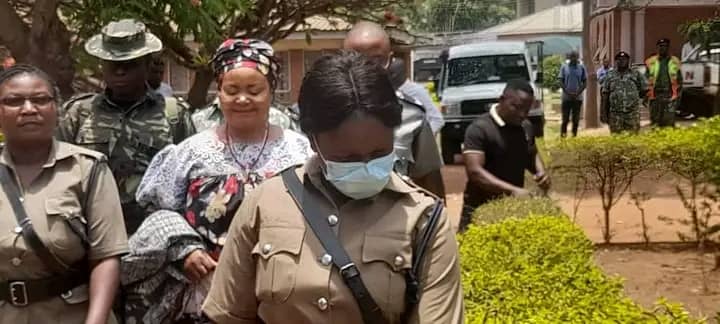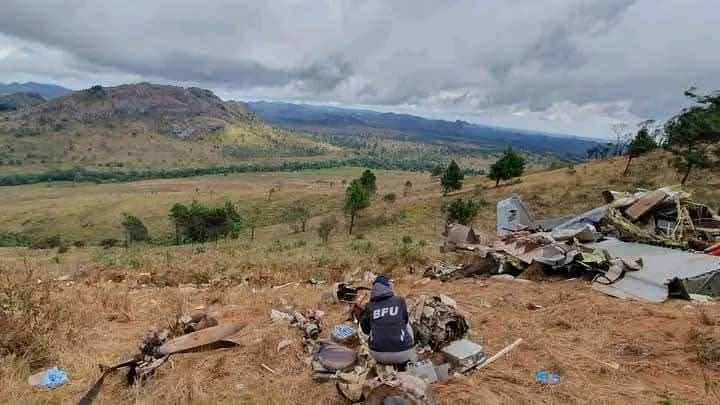By Burnett Munthali
In a troubling development during Malawi’s ongoing voter registration process, allegations of vote-buying have surfaced, raising concerns about the integrity of the upcoming elections. A viral video circulating on social media appears to show officials from the Malawi Congress Party (MCP) distributing cash to individuals registering to vote. The video has sparked outrage, with many accusing the MCP of engaging in “voter shopping” — a practice where political parties try to buy votes in exchange for small financial incentives.
The video, which has been widely shared on various social media platforms, shows a woman wearing the distinctive MCP party regalia handing out cash. In the footage, she is seen distributing MWK 1,000 notes to individuals at a public gathering. The scene unfolds in what appears to be a local area where a group of people has gathered for some sort of community event, and the woman is directly handing money to individuals, likely as an incentive for them to register to vote.
While the video does not provide a full context for the situation, the practice of distributing cash during voter registration raises significant concerns. Critics argue that this is an attempt to sway voters in the run-up to the elections by offering immediate financial incentives in exchange for their votes or participation in the process.
“Voter shopping” refers to a strategy employed by some political parties where they try to entice potential voters with promises of money, gifts, or other incentives in exchange for their support. This tactic is seen as both unethical and illegal in many democratic societies, as it undermines the principle of free and fair elections. In Malawi, where voter turnout can sometimes be influenced by financial constraints and poverty, such practices can have a detrimental effect on the fairness of the electoral process.
In the video, the woman in MCP regalia is seen handing out MWK 1,000 — a sum that, while not large by global standards, could still be significant to many Malawians struggling with poverty. For some, this amount may be enough to sway their decision or encourage them to participate in the voter registration process. Critics argue that this type of behavior takes advantage of the electorate’s economic hardships and distorts the democratic process by turning what should be a civic duty into a transaction.
As the video gained traction online, the Malawi Congress Party (MCP) has come under intense scrutiny. Party officials, however, have denied any wrongdoing, dismissing the video as a misrepresentation of events. They argue that the distribution of cash was part of a charitable initiative to assist those in need and that there was no intention to influence the voter registration process.
MCP spokespersons have claimed that the event shown in the video was part of a broader community outreach program, aimed at helping vulnerable citizens. According to their defense, the money handed out was simply a small gesture of goodwill and not an attempt to bribe voters or manipulate the registration process.
However, despite these denials, the video has sparked widespread concern among political analysts, civic groups, and voters themselves. Many see this incident as part of a broader pattern of vote-buying that has marred previous elections in Malawi.
Voter registration is a crucial component of any democratic process, and its integrity must be maintained to ensure fair and free elections. Allegations of vote-buying, such as the one depicted in the video, undermine public confidence in the electoral process and could potentially influence the outcomes of future elections.
Malawi has faced challenges in past elections related to the integrity of the electoral system. From issues with voter registration to the manipulation of results, these concerns have raised questions about how democratic the nation’s elections truly are. The rise of allegations of vote-buying, like those in the viral video, only deepens these concerns and could erode the trust of citizens in the ability of the Electoral Commission to oversee a fair and transparent process.
Under Malawian law, vote-buying is considered an illegal act, punishable by law. The country’s electoral laws make it clear that offering money or gifts in exchange for votes is a criminal offense. The Electoral Commission has previously warned political parties and candidates about the legal consequences of engaging in such practices. It is therefore crucial that the authorities investigate these allegations and take appropriate action if any laws have been broken.
The recent video raises further questions about the effectiveness of Malawi’s current electoral safeguards. If the MCP is indeed involved in voter shopping, it would not only tarnish the party’s reputation but could also lead to widespread disenchantment with the electoral process. Voters may begin to feel that their civic duty has been reduced to a mere transaction, where money holds more sway than the principles of democracy.
The reactions from the public have been mixed. While some citizens believe that the video is part of a smear campaign against the MCP, others view it as yet another example of corruption within Malawi’s political system. Civil society organizations have expressed concern over the potential ramifications of vote-buying, stressing the need for the Electoral Commission to ensure that the voter registration process remains free from undue influence.
Malawians are particularly sensitive to allegations of vote-buying, given the country’s history of electoral fraud and manipulation. With the general elections fast approaching, many are watching closely to see how the authorities will respond to these allegations and whether they will take meaningful steps to address this issue.
The viral video showing an MCP official distributing MWK 1,000 during the voter registration process has reignited concerns about the integrity of Malawi’s elections. Whether or not the incident qualifies as voter shopping remains a subject of debate, but the growing number of such allegations highlights the need for vigilance in maintaining free and fair elections. As Malawi prepares for its next general election, it is crucial that the Electoral Commission and other relevant authorities investigate these claims and work to ensure that the democratic process is not compromised by financial incentives.
The case serves as a reminder that voter registration, as an essential pillar of democracy, must be protected from manipulation. The public’s confidence in the electoral process depends on the ability of political parties and candidates to respect the rule of law and uphold the integrity of the voting system.




